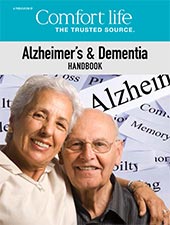What to know about this topic:
- What do life lease retirement communities cost?
- Who is eligible to live in a life lease retirement community?
- How are life lease retirement homes regulated?
- How to assess a life lease community
- Absolute musts when researching life lease retirement homes
What do life lease retirement communities cost?
- Varies widely, depending on the community and its amenities
- Generally more affordable than purchasing a similar unit in the traditional housing market due to the not-for-profit orientation of the sponsoring organizations
- Minimum 25 per cent deposit usually required at start of construction for most projects; money is needed to build the development, so the deposit is not held in trust, as it would be for a condominium
Who is eligible to live in a life lease retirement community?
- Communities set their own eligibility rules
- Generally, they have a minimum age requirement for residents: in some developments, at least 55; in others, 65 or older. Some life leases separate the owner of the interest and the resident, with only the resident needing to meet the age criterion; this enables family members to purchase the life lease interest for aging relatives
- Typically accept both couples and single individuals without dependants, with most projects limiting occupancy to no more than two people per unit
- Some cater to a specific segment of the population, such as a cultural or religious group
How are life lease retirement homes regulated?
- Life leases are relatively new players in Ontario and no specific legislation governs them
- Sponsoring organizations must consider numerous pieces of legislation when structuring their life lease agreement
- Be aware of consumer protection issues
How to assess a life lease community
- What do I know about the sponsoring organization? Have I considered its strengths, credibility and reputation?
- Does the sponsor have a proven track record?
- How secure is the project in the long term?
- What happens to my security deposit if construction is not completed?
- What is the redemption formula and is my investment protected?
- Does the development have a formal dispute mechanism in place?
- What is the philosophy of the retirement community? Do I agree with it?
- How informative and helpful is the sponsoring organization in aiding my understanding of the specific details of this particular life lease option?
- If I sell, do I get back my initial investment or a percentage of it, or do I receive market value for the unit?
- What administration fees or commissions come due when I sell or transfer my unit?
- What amenities and supports does the community offer? Does it match my wants and needs?
- Do I understand the rights and responsibilities I will have as a resident?
- Do I fully understand exactly what I am buying and all the terms of resale?
- To what extent can I be accommodated in the community if my physical or mental health fails?
- What do my lawyer and financial adviser think about the deal?
Absolute musts when researching life lease retirement homes
- Do your research
- Talk to a lawyer and a financial adviser, especially if you are considering placing the life lease in the names of your family
- Ask lots of questions and make sure you understand all the details of the specific life lease option you are considering
- Get answers in writing
- Consider the initial lump-sum cost and whether it will affect your entitlement to retain the unit's full market value appreciation at the end of the lease
•




